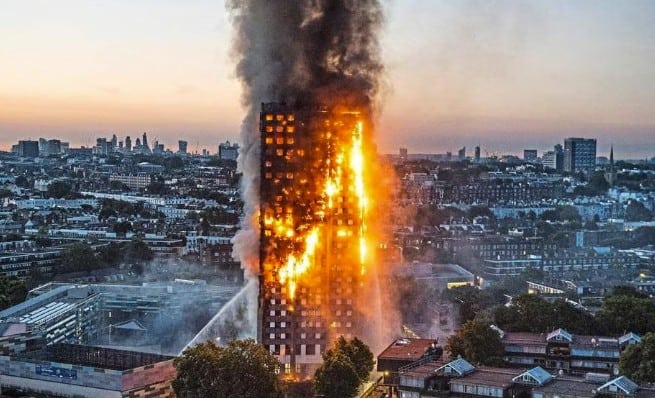Justice for the victims of the Grenfell Tower disaster may not be achieved until the end of this decade, according to Lord Macdonald, a former chief prosecutor. As survivors express increasing frustration with the “arrogant” responses from building firms involved in the tower’s refurbishment, concerns about lengthy legal processes have come to the forefront.
Speaking on Thursday, Lord Macdonald highlighted the challenges within the UK’s criminal justice system that could delay the start of any criminal trials until 2029, with verdicts possibly not being reached until the following decade. “Unless processes are massively expedited, justice is a very long way away,” he commented.
This stark prediction comes as the Metropolitan Police consider charges including corporate manslaughter, gross negligence manslaughter, fraud, and health and safety offences following the public inquiry into the 2017 fire that resulted in 72 deaths. The inquiry’s findings pointed to “systematic dishonesty” by companies such as Arconic, Celotex, and Kingspan, which were heavily criticised for their roles in the tragedy.
Survivors and bereaved family members are urging for a quicker legal process. Anthony Roncolato, one of the last individuals to escape the fire, voiced the deep pain and distress that delays could exacerbate. “It’s just crazy. There has to be justice. They have to deliver,” he stated, reflecting the community’s desperation for accountability and closure.
The Met’s Deputy Assistant Commissioner, Stuart Cundy, defended the investigation’s timeline, emphasising the importance of thoroughness: “We have one chance to get our investigation right.”
However, former senior law enforcement officials have questioned the necessity of such extended timelines. Mike Barton, former chief constable of Durham Police, and Dal Babu, former Met chief superintendent, both described the projected timescales as excessive. They argued that the essential evidence is already available and that prolonging the investigation serves no beneficial purpose.
The frustration is compounded by the ongoing issues within the court system, which Lord Macdonald attributed to austerity cuts. These cuts have not only prolonged the time it takes for cases to come to trial but are also part of the wider systemic failures that contributed to the Grenfell disaster. He warned that even if charges are decided by 2026, the trials might not commence for another two to three years.
In the face of these potential delays, the responses from the implicated companies have only fueled further indignation among the victims’ families. Despite the inquiry’s damning conclusions, the firms involved have largely denied wrongdoing, which has led to accusations of arrogance and insensitivity towards the tragedy’s human cost.
As the public and survivors await tangible progress, the debate continues over the prioritisation of the public inquiry versus immediate criminal prosecutions. This situation highlights the delicate balance between the need for comprehensive investigations and the imperative for timely justice, a balance that remains distressingly unresolved for those affected by the Grenfell Tower fire.
You may also like: Tony Blair slammed for controversial comments on immigration







